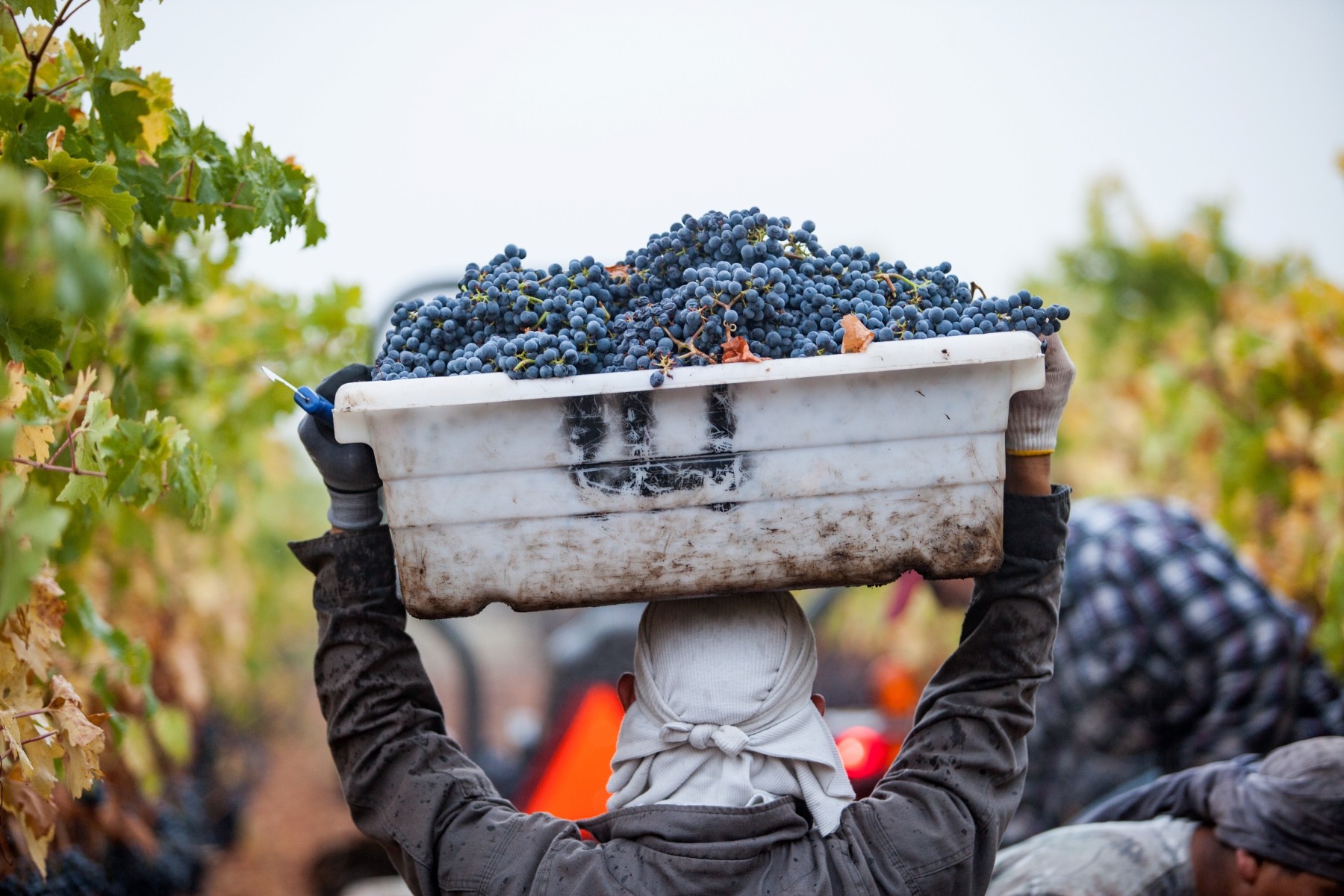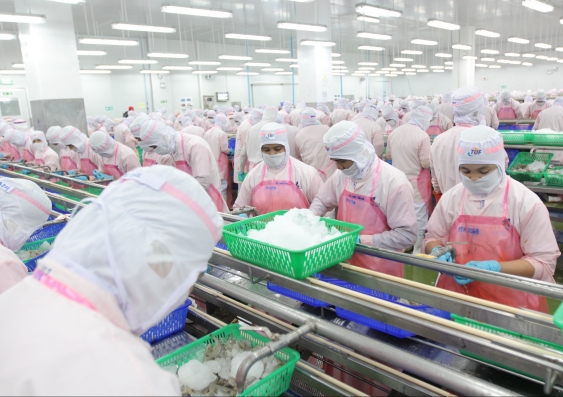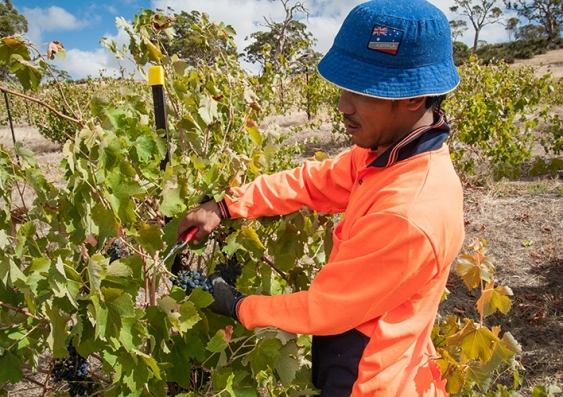Australia's moment to take on modern slavery
15 September 2024

Photo: Adobe Stock.
Fifty million people worldwide are trapped in modern slavery, more than half of them in the Asia-Pacific. New laws are forcing greater efforts to stamp it out.
Australia is at a critical point on the way to tackling modern slavery.
Federal legislation on modern slavery was first passed in 2018. This year, an amendment established the role of a national anti-slavery commissioner, with an appointment expected in the coming months.
Current laws have succeeded in raising awareness of the problem, but corporate responses remain largely symbolic.
Soon, however, things could get much tougher.
New European legislation requires action and compliance, not just reporting, to weed out modern slavery and labour exploitation — a change affecting companies outside Europe that supply to or trade in EU markets, directly or indirectly.
Europe and the US have also adopted bans on foreign goods suspected of involving modern slavery.
The Asia-Pacific region is estimated to have the largest number of people in modern slavery — more than 29 million.
It is therefore a good moment to reassess Australia’s approach to dealing with modern slavery, a complex problem that can sometimes hide in plain sight.
A range of exploitative practices
Modern slavery is a global issue — it occurs in every region of the world, in developing and developed countries.
In 2013, the non-profit organisation Walk Free published its first Global Slavery Index, which estimated 29.8 million people were victims of modern slavery.
Ten years later, the number had increased to 50 million, including 28 million people in forced labour and 22 million in forced marriage.
There is no globally recognised definition of modern slavery, and the concept is not always well understood. It is an umbrella term that encompasses a range of serious exploitative practices that include human trafficking, servitude, forced labour, debt bondage, deceptive recruiting for labour or services, forced marriage and the worst forms of child labour.
Forced labour is the form of modern slavery most often associated with workplace exploitation and refers to work people must perform against their will under the threat of punishment.
Modern slavery is best understood as existing on a "continuum of exploitation". Such an outlook recognises people can be exposed to exploitative practices that gradually worsen, sometimes leading to modern slavery.
The Australian situation
Estimates of modern slavery's prevalence in Australia vary widely, with Walk Free claiming 41,000 people are subject to modern slavery.
While formally recorded cases of modern slavery are low, it is generally considered such cases reflect only a fraction of its true prevalence, and serious exploitation exists in farms, factories, businesses and homes in Australia.
In 2024, a man was charged with slavery of crew members on a fishing boat in Queensland and in 2021, a couple were found guilty of keeping a woman in forced labour in their business and home for more than three years.
The number of reports the Australian Federal Police receive each year has been increasing. In 2022-23, the AFP reported the top three forms of modern slavery in Australia were forced marriage (90 reports), sexual servitude and exploitation (73) and forced labour (43).
The Australian government has adopted a ‘market-based disclosure’ model to regulate modern slavery in corporate operations and supply chains.
The Modern Slavery Act 2018 establishes a reporting requirement for relevant entities to publish annual public statements on their modern slavery risks and the steps taken to address these risks in their operations and supply chains.
It applies to entities based in or operating within Australia, and that have an annual consolidated revenue of at least $AU100m (and includes the Australian federal government). Other entities based in or operating within Australia may report voluntarily.
The Act mandates reporting against specified criteria. It does not penalise entities financially for failing to report nor formally require them to take specific action (such as conducting human rights due diligence or providing remedy) in response to risk assessment.
The intent behind the legislation is that the power of public scrutiny by investors, civil society, consumers and academia — collectively, ‘the market’ — will encourage compliance both in terms of reporting levels and quality of disclosure.
'No meaningful change'
Critiques of this disclosure-based model are that enforcement must move from a discretionary approach that relies on self-regulation by companies to a formalised mechanism regulated by government that can both incentivise and penalise companies that fail to take action to prevent modern slavery.
The Act was widely hailed as an essential first step by Australia towards tackling the problem of modern slavery, with the government proclaiming it would transform the way businesses respond to modern slavery by prompting a business-led "race to the top".
However, more than five years into its operation, with more than 10,000 statements published on the government’s modern slavery register, the extent to which the law is transforming business remains highly uncertain.
An independent review of the law published in May 2023 acknowledged widespread views that “there is no hard evidence that the Modern Slavery Act in its early years has yet caused meaningful change for people living in conditions of modern slavery”.
The review made 30 recommendations aimed at strengthening Australia’s response to modern slavery and increasing regulatory oversight, including:
- Requiring entities to have a due diligence system in place that will identify, monitor and address modern slavery risks
- Introducing penalties for entities that fail to submit a modern slavery statement, for including false information in a statement, and for failing to have a due diligence system in place
- Introducing new reporting criteria that requires entities to report on modern slavery incidents identified annually
More than a year later, the Australian government has still not responded to the review recommendations.
While the adoption of the Act has demonstrated the potential of the law to shape business awareness, this increased consciousness of modern slavery has not yet resulted in effective practices to identify and remediate it.
Looking ahead
The establishment of a national anti-slavery commissioner signals a new level of engagement. The commissioner will be responsible for promoting business reporting under the Modern Slavery Act, raising community awareness and supporting victim-survivors of modern slavery.
While this is a useful addition to Australia’s regulatory framework for tackling modern slavery, the role will have no enforcement or investigative powers to ensure companies comply with the law, and a modest budget of $8 million over four years.
Meanwhile, with overseas markets imposing stricter standards, Australia is now playing catch-up.
The adoption of the Corporate Sustainability Due Diligence Directive in Europe in April 2024 demands companies undertake human rights due diligence to support greater transparency and action on modern slavery and labour exploitation and includes a substantive enforcement framework.
Companies in Asia and Australia that supply to or trade in EU markets, either directly or indirectly, will be required to identify, assess — and, most importantly, act to prevent — modern slavery in their supply chains.
In addition, Europe and the US have adopted import bans that block the import or sale of foreign goods suspected of involving modern slavery.
Evidence suggests it would be pertinent to consider a policy reset and incorporate reforms to strengthen the current regulatory approach.
The emergence and development of the concept of human rights due diligence has advanced the understanding of how governments can shape and how businesses can implement better approaches to identify and communicate risk and impact around modern slavery.
There remains incoherence between legislative approaches, business practices and the demands of stakeholders.
A more holistic approach that includes enforcement measures and access to remedy for those affected would facilitate meaningful change for people living in conditions of modern slavery.
Justine Nolan is the Director of the Australian Human Rights Institute and a Professor in the Faculty of Law & Justice at UNSW Sydney.
Originally published under Creative Commons by 360info™.
Related stories
-

Migrant workers have long been too scared to report employer misconduct. A new visa could change this
-

More forced marriages and worker exploitation – why Australia needs an anti-slavery commissioner
-

Companies support stronger modern slavery laws: new research
-

Experts call for urgent whistleblower protections for migrant workers who report exploitation


